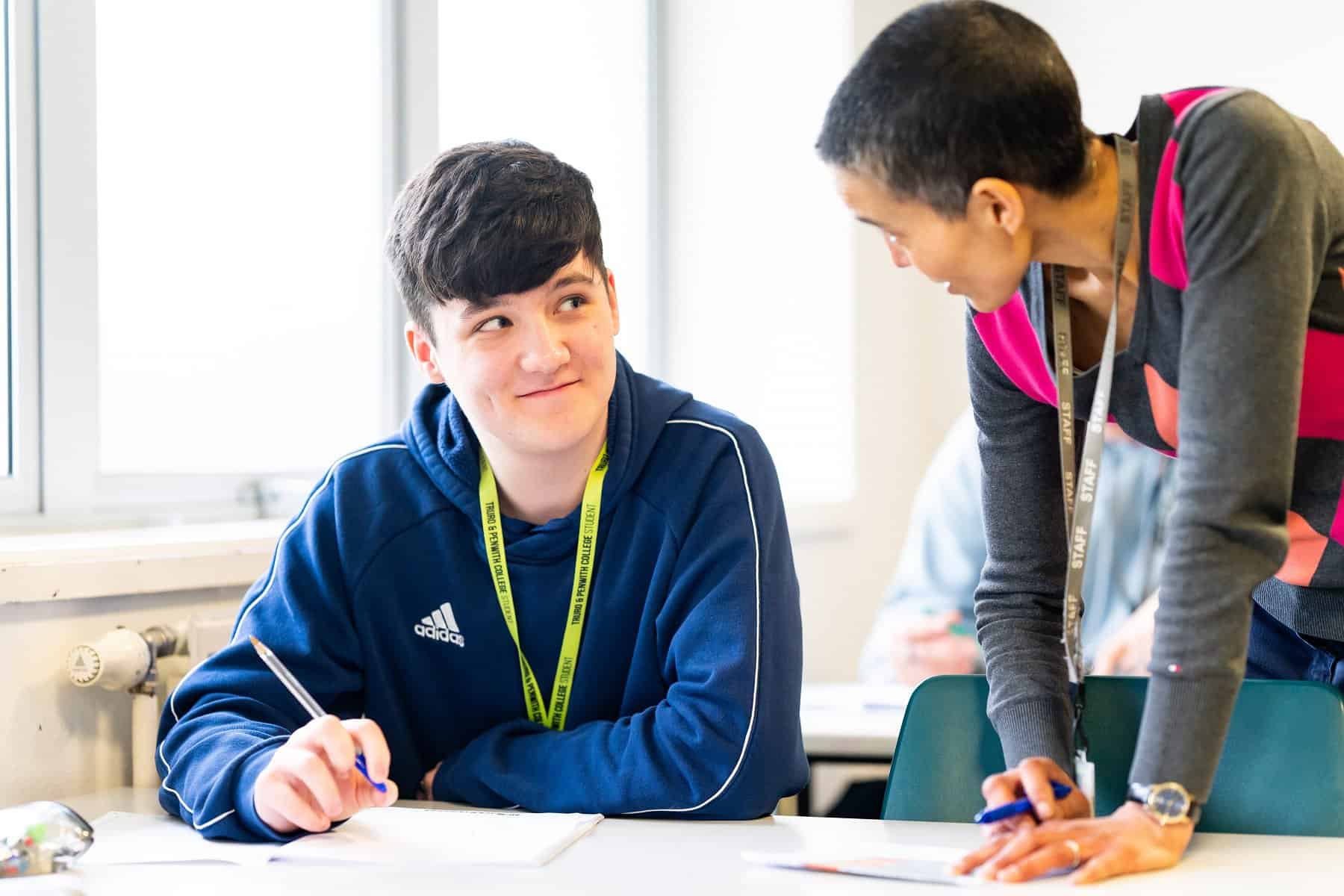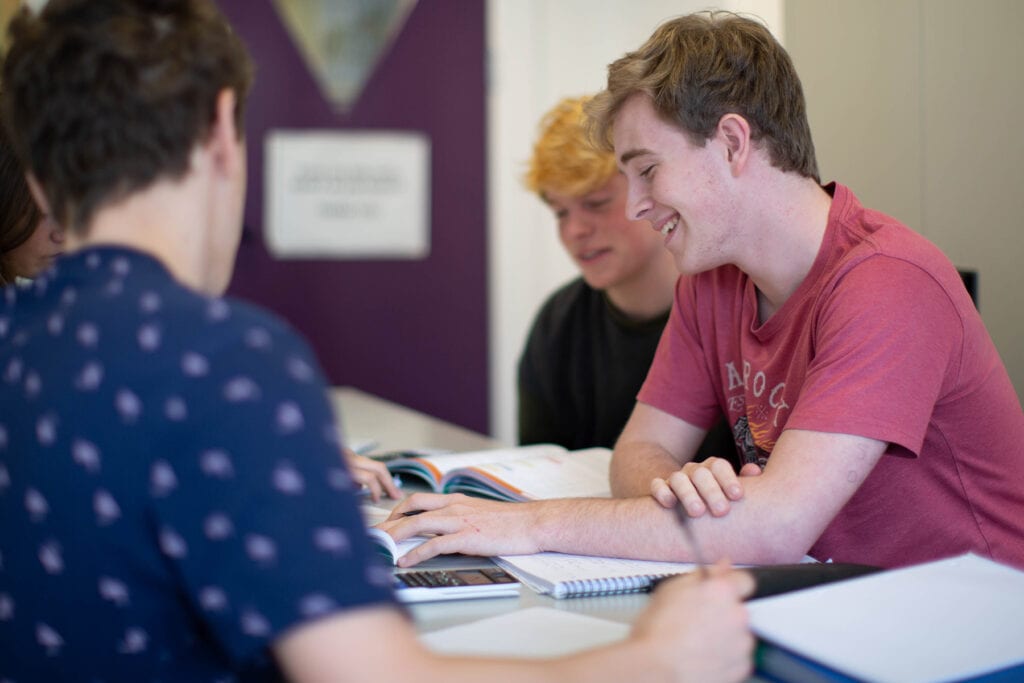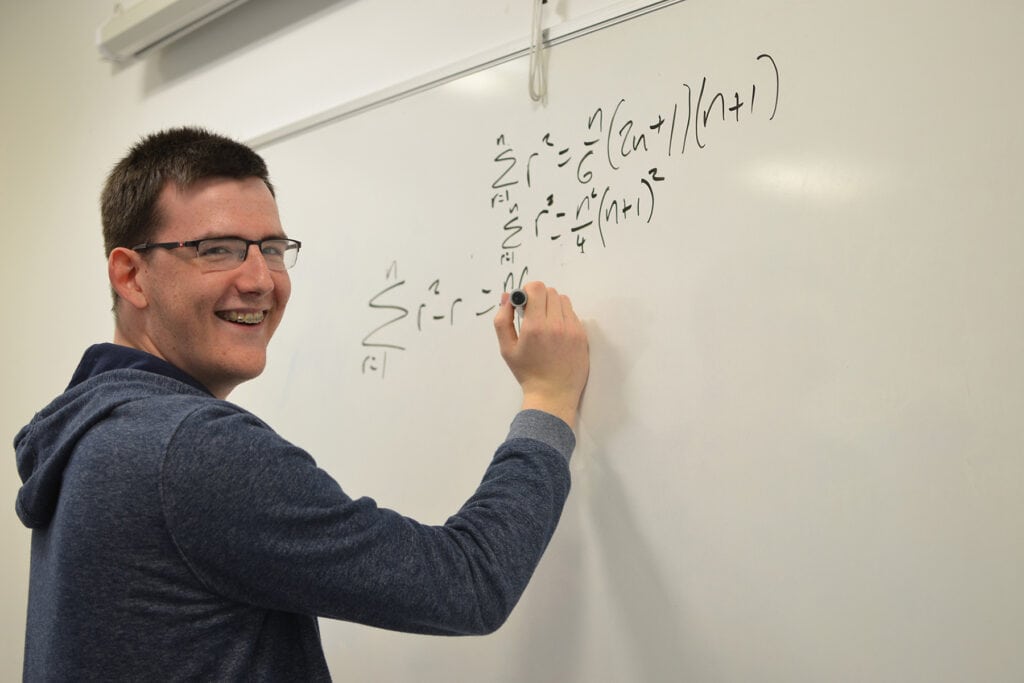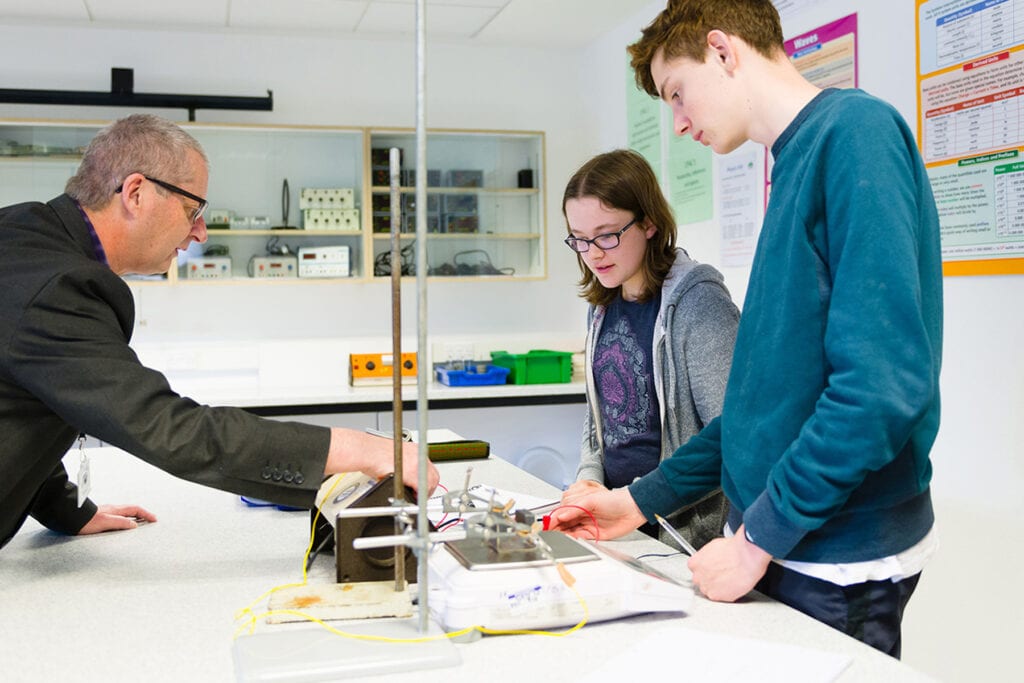New students starting in September: You can find more information about Induction days and submitting your GCSE results in our Start of Year Guide.
WHY CHOOSE THIS COURSE
Further Mathematics provides an excellent preparation for a wide range of university courses as well as being a versatile qualification that is well respected by employers. Further Mathematics is an essential requirement for many degree level Mathematics courses. By studying Further Mathematics you will increase your knowledge and understanding of mathematical techniques and their applications as well as enhancing your study of other subjects, in particular Physics, Chemistry, Biology, Geography, Psychology, Economics, Business Studies and PE. Further Mathematics is designed to stretch and challenge able young mathematicians by introducing you to new techniques and concepts, such as complex numbers and matrices, as well as studying material from A Level Mathematics in greater depth.
Apply for this course
Start date: 08/09/2025
TOP COURSE HIGHLIGHTS
Stretch & challenge
understand techniques
versatile qualification
excellent tutor support
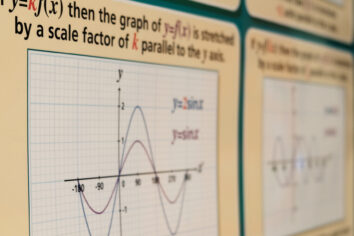
Take it higher
A course that is satisfying, interesting, well respected, useful, fun and full of surprises; Further Mathematics is an essential requirement for many degree level Mathematics courses.
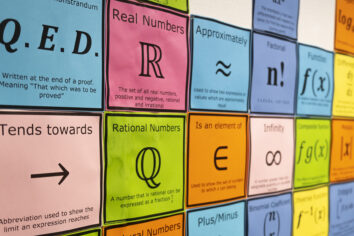
Highly valued by employers
A qualification in Further Mathematics is highly valued by many universities and employers. Further Mathematics is also an excellent subject to complement your other studies.
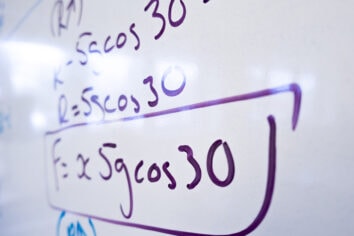
Varied curriculum
You will be introduced to new areas of pure mathematics such as algebraic proof, complex numbers, matrices, further algebra, further calculus and further vectors.
WHAT WILL I LEARN?
Further Mathematics is a two-year A Level qualification that takes up two timetable grids and will give you two A Levels – Mathematics and Further Mathematics. These must be taken alongside another two A Level subjects and will mean that you spend about half your time at college studying on your Mathematics courses.
You will be taught by highly qualified specialist subject tutors in classes consisting exclusively of Further Mathematics students.
You will study the same material as students taking A Level Mathematics plus additional material for A Level Further Mathematics. You will need a calculator that can handle the statistical distributions (your tutor will advise you about suitable calculators). You will be encouraged to use a graphical calculator for Further mathematics, although this is not essential. For the start of the course the calculator that you used for GCSE Mathematics is suitable.
In order that you start your Maths A Level with confidence, we are asking all new students to complete some work prior to starting the course. This can be found online.
The workbook will help you to be ready for the start of the course and make sure that there are no important topics that you have forgotten or missed out on.
In Mathematics, you will extend some of the core ideas from GCSE Mathematics, such as quadratic equations, coordinate geometry, algebra, sequences and trigonometry. You will also meet material that may be new to you, such as calculus, logarithms, trigonometric identities and vector geometry. You will extend the range of functions that you can use and learn about partial fractions, exponential functions, algebraic proof and the use of vectors in threedimensional geometry. You will also develop differentiation and integration techniques that will enable you to deal with a wide variety of functions. You will use the core material to model practical problems and develop your problem solving skills as well as finding out about some of the background stories behind the ideas.
You will extend the quantitative methods and data handling work from GCSE Mathematics. Much of this material will seem familiar, such as probability, data presentation and interpretation, although you will take the ideas further. You will also learn about statistical distributions and hypothesis testing and you will investigate a large data set to get a feel for some of the decisions that a statistician would have to make when processing and interpreting data.
You will also study some mechanics, exploring why moving objects move in the way they do and why stationary objects remain in static equilibrium. You will learn about modelling forces and develop equations for simple kinematics in one or two dimensions. You will learn how to apply Newton’s laws to predict the motion of simple systems that can be modelled as particles. There is some crossover with AS Physics, but you do not need to be studying Physics to understand mechanics in Mathematics.
In Further Mathematics, you will be introduced to some new and very useful areas of pure mathematics, such as algebraic proof, complex numbers, matrices, further algebra, further calculus and further vectors. You will apply these ideas to problems and meet more advanced ideas such as polar coordinates, differential equations, hyperbolic functions, de Moivre’s theorem and further work on matrices and using vectors in geometry.
You will also take two option papers to extend and broaden your understanding and application of Further Mathematics. These papers allow a choice from Further Statistics, Further Mechanics, Further Decision or Further Pure. You will sit A Level exams in Mathematics and Further Mathematic
WHERE WILL IT TAKE ME?
A qualification in Further Mathematics is highly valued by many universities and employers. It is also an excellent subject to complement your other studies. There are obvious links with computing, sciences, and finance-based courses but Further Mathematics can also be useful for sharpening up your thinking skills and logical reasoning.
Many universities require at least AS level Further Mathematics (and often ask for TMUA, MAT. AEA or STEP) for admission to their Mathematics degree courses, a few universities prefer applicants for their Engineering and Computing courses to have studied Further Mathematics to at least AS level. Further Mathematics is also useful for applicants to Economics and Actuarial Science degrees at some universities
Jobs directly related to further mathematics include: Acoustic consultant, Actuarial analyst, Actuary, Astronomer, Chartered accountant, Chartered certified accountant, Data analyst, Data scientist, Investment analyst, Research scientist (maths), Secondary school teacher, Software engineer, Sound engineer, Statistician
ADDITIONAL INFORMATION
Your success in this subject is dependent upon excellent attendance, punctuality and effort. There is a strong correlation between attendance/punctuality/effort and success.
- You will have weekly homework assignments from each of your two lecturers. These assignments will be quite substantial and you should expect to spend a couple of hours on each assignment. In the assignments you will usually be asked to do some preparation work for the next topic, some revision questions (which you will mark and correct yourself) on recent topics and some new questions on the current topic.
- You will have regular tests carried out in class, generally one each half term but more frequently at the start of the course.
- You will be encouraged to enhance your study experience by following up the work done in class with further reading, using websites or trying extra questions from the online text books.
- You will have access to exam papers, mark schemes and online worked solutions through the college Moodle site.
- You will review your own performance in one-to-one discussions with your tutor.
- You will be given mock examinations for Mathematics and Further Mathematics.
- You will be examined by traditional written examinations, taken in May or June.
Entry requirements
The minimum requirement is five GCSEs at good grades in appropriate subjects, including English, and at least Grade 7 in GCSE Mathematics with a GCSE points average of at least 6.5.
Meet the staff, tour the campus and find out about life as a student at one of the best colleges in the country.
